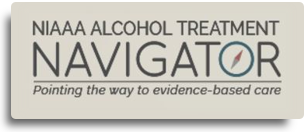Most
of the alcohol detox usually kickstarts 24-hours after evaluation.
During this period of time, the patient's vital signs such as the
ability to walk, respiration, pulse and blood pressure are used to
determine the type of medication that will best suit the individual.
There is a gradual reduction in the dosage administered on daily basis.
The treatment process lasts for 5 days after which the individual is
completely detoxed from alcohol.
There
is a general approach that can be adopted in order to detox from
benzodiazepines. The patient’s intake is gradually reduced on a daily
basis. This detoxing process takes a longer time as compared with that
of alcohol. This can last for several months as an outpatient. During
this detoxing, the vital signs of the individual are taken on a daily
basis throughout the treatment process and the use of non-benzodiazepine
medications can be employed in reducing the discomfort associated with
withdrawal.
https://www.postpoems.org/authors/artic1904/prose/1066424
Xiaoqin Liu, the lead author, an epidemiologist at the National Center for Register-based Research at Aarhus University in Denmark, revealed that the study is the first look at a wide range of psychiatric disorders, rather than a single psychiatric illness occurring in children who have been exposed to antidepressants in the uterus.
Data generated from this research were in agreement with similar researches conducted in the field. There were some few discrepancies which Liu believed would have been as a result of differences in the sample size and study population, or perhaps they were able to use a modest approach in the present study.
While replying to a mail from Reuters Health, Liu had this to say “We would like to stress that our study does not suggest or support that women with depression discontinue medication during pregnancy.”
http://www.medicalmingle.com/doctor1970/blog/2018/08/05/use_of_antidepressant_during_pregnancy_can_lead_to_higher_risk_of_psychiatric_illness
Today there are more options available for treating alcohol use disorder (AUD) than ever before. Decades of research have led to advances in medications and behavioral therapies to help people recover. Professionally led alcohol treatment now takes place in a variety of settings, including outpatient care that can help many people recover while still living at home.
To learn more about treating AUD, visit the following:

► NIAAA Alcohol Treatment Navigator
This online tool is designed to help consumers find quality treatment for alcohol use disorder (AUD).
Navigator focuses on evidence-based alcohol
treatment, telling you what you need to know about AUD and treatment
options, and helping you find the right treatment for you—and near you.
https://www.niaaa.nih.gov/alcohol-health/support-treatment

No comments:
Post a Comment